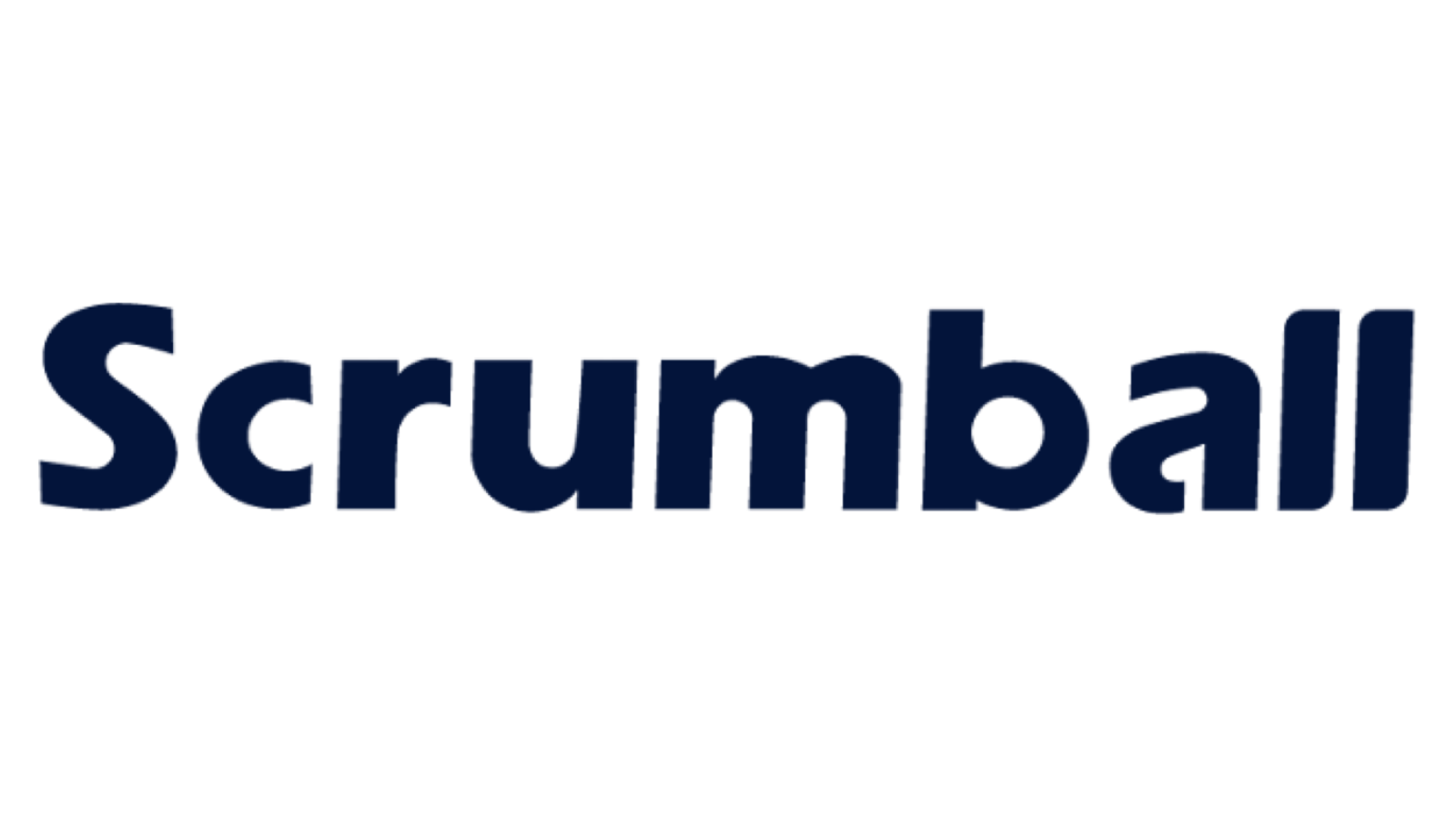Top 10 CRM Tools with Marketing Automation for Small Businesses in 2025

Running a small business in 2025 comes with its challenges, but using a CRM with marketing automation can make your life a whole lot easier. These tools help you save time by streamlining your marketing processes. Imagine automating repetitive tasks like sending emails or tracking leads. That’s time you can spend growing your business instead.
You’ll also see better customer engagement. Personalized marketing campaigns let you connect with your audience in a way that feels genuine. Plus, with features like analytics and reporting, you can measure what’s working—whether it’s email open rates or conversion rates—and tweak your strategies for even better results. Tools like lead scoring help you focus on high-quality leads, boosting your chances of closing deals.
In short, these tools don’t just simplify your work—they help you grow smarter and faster.
What Is a CRM with Marketing Automation?
Definition of Marketing Automation CRM
A marketing automation CRM combines customer relationship management with tools that automate your marketing tasks. It’s like having a personal assistant for your business. This type of software helps you manage customer data, track interactions, and automate repetitive tasks like sending follow-up emails or scheduling social media posts. It’s designed to save you time while improving how you connect with your customers.
Think of it as a customizable CRM that adapts to your business needs. Whether you’re nurturing leads, running email campaigns, or analyzing customer behavior, a marketing automation CRM keeps everything organized in one place. It’s not just about managing relationships—it’s about making them stronger through smarter, automated strategies.
Benefits of CRM for Small Business
Streamlining Marketing and Sales Processes
A CRM with automation simplifies your daily operations. You can automate tasks like lead tracking, email campaigns, and even sales follow-ups. This means less time spent on manual work and more time focusing on growing your business. Plus, marketing automation tools ensure your processes run smoothly, reducing the risk of errors.
Enhancing Customer Engagement and Retention
Keeping your customers engaged is key to building loyalty. A marketing automation CRM helps you personalize your communication. You can send targeted messages based on customer preferences or behavior. This makes your audience feel valued and increases the chances they’ll stick around.
Improving Team Collaboration and Productivity
When your team has access to a centralized system, collaboration becomes easier. Everyone can see customer interactions, share updates, and stay on the same page. This boosts productivity and ensures no opportunities slip through the cracks.
Boosting Revenue and Business Growth
By focusing on high-quality leads and automating your sales funnel, you can close deals faster. A CRM for small business helps you identify what’s working and what’s not, so you can refine your strategies. The result? Increased revenue and steady growth.
Many small businesses face challenges like managing outdated customer data or struggling with user adoption. A CRM with marketing automation solves these issues by offering tools that improve data accuracy and encourage team engagement.
Top 10 Best CRM Tools with Marketing Automation for Small Businesses

HubSpot CRM
Key Features
HubSpot CRM offers an all-in-one platform that combines marketing, sales, and customer service tools. It includes features like email tracking, lead scoring, and AI-powered sales forecasting. The platform also provides robust analytics to measure marketing effectiveness and actionable insights to refine your strategies.
Pros
- Free features for inbound marketing make it budget-friendly.
- Seamless integration with AI technologies enhances lead management.
- A user-friendly interface simplifies onboarding for your team.
- Strong focus on content marketing supports your campaigns.
Cons
- Advanced features can get expensive as your business grows.
- Limited customization options compared to other tools.
Pricing
HubSpot CRM offers a free plan with basic features. Paid plans start at $50/month, scaling up based on your needs.
Ideal Use Cases
This tool is perfect for small businesses looking for the best CRM with marketing automation to manage marketing and sales in one place. It’s especially useful for teams focused on inbound marketing and lead nurturing.
Zoho CRM
Key Features
Zoho CRM stands out with its extensive customization options and automation capabilities. It integrates with tools like QuickBooks and Google Apps, making it versatile. Real-time notifications keep you updated on customer interactions, while automation handles repetitive tasks.
Pros
- Affordable pricing makes it accessible for small businesses.
- Customization lets you tailor the CRM to your needs.
- Integration with popular tools enhances functionality.
- Real-time updates improve customer engagement.
Cons
- The interface can feel overwhelming for beginners.
- Customer support may not always meet expectations.
Pricing
Zoho CRM starts at $14/user/month, making it one of the most cost-effective options.
Ideal Use Cases
Zoho CRM is ideal for small businesses seeking a cost-effective CRM with automation. It’s great for teams that need real-time updates and personalized customer interactions.
Salesforce Essentials
Key Features
Salesforce Essentials is a scaled-down version of Salesforce, designed for small businesses. It includes lead management, email integration, and reporting tools. The platform also offers AI-powered insights to help you make data-driven decisions.
Pros
- Scalable as your business grows.
- AI tools provide valuable insights for sales and marketing.
- A trusted name with a strong reputation in the CRM space.
Cons
- The learning curve can be steep for new users.
- Pricing may be higher compared to other small business CRMs.
Pricing
Salesforce Essentials starts at $25/user/month, offering a balance of features and affordability.
Ideal Use Cases
This tool works well for small businesses that need a scalable CRM with marketing automation. It’s a good fit for teams looking to leverage AI for smarter decision-making.
Pipedrive
Key Features
Pipedrive is designed to simplify your sales process. Its drag-and-drop interface makes managing tasks quick and intuitive. You can customize fields to match your business needs, ensuring the CRM fits seamlessly into your workflow. The platform also offers visual pipelines, email integration, and activity reminders to keep your team on track.
Pros
- Easy to set up and use, even for beginners.
- Drag-and-drop functionality speeds up task management.
- Customizable fields help you optimize your processes.
- Visual pipelines provide a clear overview of your sales progress.
Cons
- Limited marketing automation features compared to competitors.
- Advanced reporting tools require higher-tier plans.
Pricing
Pipedrive starts at $14.90/user/month for its Essential plan. Higher-tier plans with advanced features go up to $99/user/month.
Ideal Use Cases
Pipedrive is perfect for small businesses focused on sales. If you’re looking for a CRM with automation to streamline your sales pipeline and improve task management, this tool is a great choice.
ActiveCampaign
Key Features
ActiveCampaign combines email marketing, CRM, and automation into one powerful platform. It bridges the gap between customer data and marketing action, turning insights into automated campaigns. Features like abandoned cart recovery and post-purchase communication help you engage customers effectively.
Pros
- Excellent for automating marketing campaigns.
- Integrates with shopping carts and payment systems.
- Abandoned cart recovery boosts sales.
- Detailed analytics improve campaign performance.
Cons
- The interface can feel overwhelming for new users.
- Pricing may be steep for businesses with large contact lists.
Pricing
ActiveCampaign starts at $29/month for the Lite plan. Pricing increases based on the number of contacts and features you need.
Ideal Use Cases
This is one of the best CRM with marketing automation for small businesses that rely on e-commerce. It’s ideal for automating customer engagement and driving repeat purchases.
Freshsales
Key Features
Freshsales offers a marketing automation CRM that combines AI-powered lead scoring, email tracking, and sales pipelines. It integrates with tools like Slack and Zapier, making it versatile. The platform also includes built-in phone and chat features for seamless communication.
Pros
- AI tools help prioritize high-quality leads.
- Built-in communication tools enhance customer interactions.
- Easy integration with popular apps.
- Affordable pricing for small businesses.
Cons
- Limited customization options for advanced users.
- Some features require additional setup time.
Pricing
Freshsales starts at $15/user/month for the Growth plan. The Pro plan, which includes advanced features, costs $39/user/month.
Ideal Use Cases
Freshsales is a great CRM for small business owners who want an affordable, all-in-one solution. It’s especially useful for teams that need AI-powered lead management and integrated communication tools.
Keap (formerly Infusionsoft)
Key Features
Keap offers a robust CRM with automation designed to simplify your business processes. It includes features like email marketing, lead capture, and appointment scheduling. The platform also provides customizable templates for landing pages and email campaigns. Its automation builder allows you to create workflows that save time and improve efficiency.
Pros
- Easy-to-use interface, even for beginners.
- Combines CRM, email marketing, and e-commerce tools in one platform.
- Excellent customer support with live chat and training resources.
- Strong focus on automation for repetitive tasks.
Cons
- Pricing can be steep for small businesses with limited budgets.
- Advanced features may require a learning curve.
Pricing
Keap’s pricing starts at $129/month for the Pro plan, which includes automation and CRM features. The Max plan, offering advanced tools, costs $199/month.
Ideal Use Cases
Keap is perfect for small businesses that want an all-in-one CRM with automation. It’s especially useful for service-based businesses that need appointment scheduling and lead management.
EngageBay
Key Features
EngageBay combines CRM, marketing automation, and helpdesk tools into one affordable platform. It offers email marketing, social media management, and lead scoring. The drag-and-drop automation builder makes it easy to create workflows. You also get access to a built-in live chat feature for real-time customer support.
Pros
- Affordable pricing plans for small businesses.
- All-in-one platform eliminates the need for multiple tools.
- Drag-and-drop automation builder simplifies workflow creation.
- Free plan available with basic features.
Cons
- Limited advanced features compared to premium CRMs.
- Reporting tools could be more detailed.
Pricing
EngageBay offers a free plan with basic features. Paid plans start at $14.99/user/month, making it one of the most budget-friendly options.
Ideal Use Cases
EngageBay is ideal for small businesses looking for a cost-effective CRM with automation. It’s great for startups that need marketing, sales, and customer support tools in one place.
Agile CRM
Key Features
Agile CRM stands out with its powerful automation and ease of use. Here’s a quick look at its standout features:
| Feature | Description |
|---|---|
| Automated Lead Qualification | Helps sales teams focus on the most promising leads by scoring them based on their interactions. |
| Integrated Marketing Automation | Automates lead nurturing through email and web interactions, reducing manual efforts. |
| Web Tracking | Keeps a log of interactions, creating actionable profiles for leads and customers. |
| Telephony Integration | Seamlessly integrates phone systems with the CRM, streamlining call management. |
| Ease of Use | Designed for non-technical users, requiring no full-time IT support for setup and maintenance. |
Pros
- Free to try with no upfront investment.
- Easy setup with automatic updates.
- Customizable without coding knowledge.
Cons
- Limited scalability for larger businesses.
- Some integrations may require additional configuration.
Pricing
Agile CRM offers a free plan for up to 10 users. Paid plans start at $8.99/user/month, making it an affordable choice for small teams.
Ideal Use Cases
Agile CRM is perfect for small businesses that need a simple yet effective CRM with automation. It’s a great fit for teams that want to streamline lead qualification and customer interactions without technical expertise.
Salesmate
Key Features
Salesmate is a crm with automation that’s built to simplify your sales process. It offers features like email sequencing, built-in calling, and workflow automation. You can track deals visually with its pipeline management tool. The platform also integrates with apps like Zapier and Slack, making it easy to connect with your existing tools. Plus, its mobile app ensures you can manage your sales on the go.
Pros
- Easy-to-use interface that doesn’t require technical expertise.
- Built-in calling and texting features save you time.
- Highly customizable pipelines to match your sales process.
- Affordable pricing plans for small businesses.
Cons
- Limited advanced marketing automation features.
- Reporting tools could be more detailed for in-depth analysis.
Pricing
Salesmate offers flexible pricing plans. The Starter plan begins at $12/user/month, while the Growth plan costs $24/user/month. Both plans include essential crm with automation features, but the Growth plan adds advanced tools like workflow automation.
Ideal Use Cases
Salesmate works well for small businesses looking to streamline their sales process. Here’s a quick breakdown of its most common use cases:
| Use Case Type | Description |
|---|---|
| Inbound Sales | Strategies for attracting customers. |
| Outbound Sales | Approaches for reaching out to leads. |
| Remote Sales | Techniques for selling remotely. |
| Account Based Sales | Focused strategies for specific accounts. |
If you’re managing remote teams or focusing on account-based sales, Salesmate can help you stay organized and close deals faster. Its crm with automation features make it a great choice for businesses that want to save time and boost productivity.
How to Choose the Best CRM with Marketing Automation for Your Small Business

Key Factors to Consider
Affordability and pricing plans
When choosing a CRM, affordability matters. Look for pricing models that fit your budget without sacrificing essential features. Some tools charge per user, while others offer flat fees or tiered pricing. If you're just starting out, free or low-cost plans can help you get started. However, keep an eye out for hidden costs like data migration fees or premium add-ons.
Ease of use and user interface
A user-friendly CRM saves you time and frustration. Choose a tool with an intuitive interface that your team can quickly learn. A simple design reduces the learning curve and boosts adoption rates. If possible, test the software through a demo to see how it feels in action.
Scalability for future growth
Your business will grow, and your CRM should grow with it. Look for a platform that offers flexibility, like cloud storage and customizable features. Regularly review your needs to ensure the tool can handle increased data and users as your business expands.
Integration with existing tools and software
A CRM that integrates with your current systems keeps your workflow smooth. Check if it connects with tools like email platforms, accounting software, or e-commerce systems. Seamless integration prevents data silos and improves customer engagement.
Tips for Evaluating CRM Tools
Utilize free trials and demos
Free trials let you test the waters before committing. Use this time to explore features, assess ease of use, and see how well the tool fits your needs. Involve your team and gather feedback to make an informed decision.
Check customer support and training options
Reliable support can make or break your experience. Look for vendors that offer onboarding, training resources, and responsive customer service. This ensures your team gets the help they need when they need it.
Read reviews and success stories
Customer reviews provide valuable insights. Look for feedback from businesses similar to yours. Success stories can highlight how the CRM has helped others achieve their goals, giving you confidence in your choice.
Mistakes to Avoid When Choosing a CRM
Overlooking hidden costs
Some CRMs come with unexpected expenses. Watch out for charges related to adding users, customization, or ongoing training. These can add up quickly and strain your budget.
Selecting overly complex tools
A feature-packed CRM might sound appealing, but too many bells and whistles can overwhelm your team. Choose a tool that matches your business needs without unnecessary complexity.
Ignoring team feedback and needs
Your team will use the CRM daily, so their input is crucial. Involve them in the selection process to ensure the tool aligns with their workflows. Ignoring their feedback can lead to low adoption rates and wasted resources.
Pro Tip: Create a checklist of your must-have features and evaluate each CRM against it. This helps you stay focused and choose a tool that truly meets your needs.
Choosing the right CRM with marketing automation can transform how you manage customer engagement and grow your business. From tools like HubSpot and Zoho to affordable options like EngageBay, each offers unique features tailored to small business needs. Focus on ease of use, scalability, and integration with your current tools. Map out your goals and ensure the CRM aligns with them. Whether you need sales automation, customizable dashboards, or cloud-based access, there’s a solution for you. Take advantage of free trials and explore these tools to find the perfect fit for your business.
FAQ
What is the difference between a CRM and a marketing automation tool?
A CRM focuses on managing customer relationships and tracking interactions. Marketing automation tools handle repetitive marketing tasks like email campaigns. A combined tool, like automated crm tools, gives you the best of both worlds by integrating these functions.
Can small businesses afford a CRM with marketing automation?
Yes, many CRMs offer affordable plans or even free versions. Tools like EngageBay and Zoho CRM provide budget-friendly options. You can start small and upgrade as your business grows.
How long does it take to set up a CRM?
Most CRMs are quick to set up, especially cloud-based ones. You can usually get started within a day. However, customizing features and training your team might take a bit longer.
Do I need technical skills to use a CRM?
Not at all! Many CRMs are designed for non-technical users. They offer intuitive interfaces and drag-and-drop features. Plus, most vendors provide tutorials and customer support to help you.
Can a CRM help me retain customers?
Absolutely! A CRM lets you personalize communication, track customer preferences, and automate follow-ups. These features make your customers feel valued, improving loyalty and retention.
See Also
Essential Influencer Marketing Platforms for Your 2024 Strategy
Affordable Influencer Marketing Platforms to Consider in 2024
Navigating Influencer Marketing Tools for Small Enterprises
Key Influencer Marketing Statistics Every Marketer Should Understand
Best Ambassador Marketing Campaigns That Achieved Great Success
